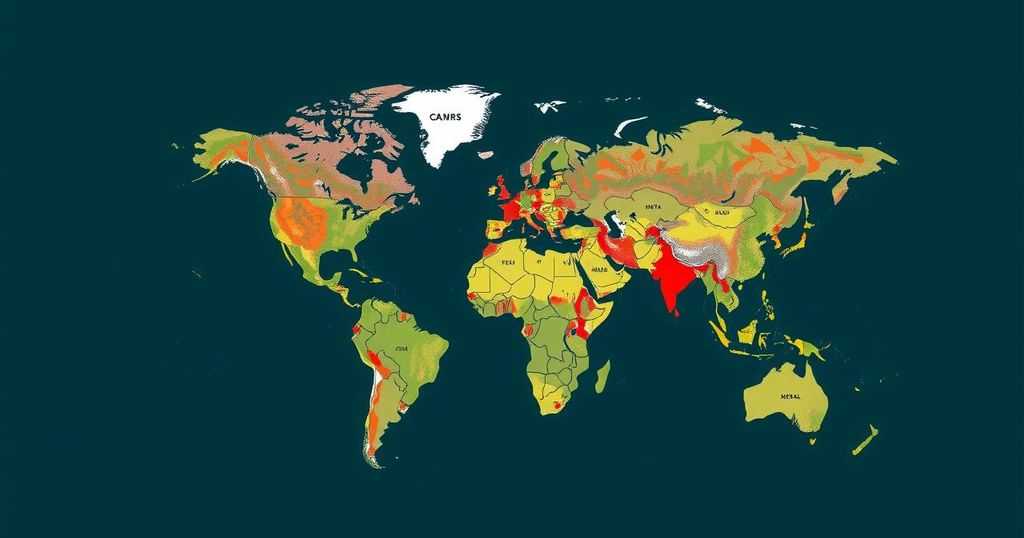The COP29 climate summit in Baku has seen stalled negotiations on climate finance, as developed nations propose raising funding to $300 billion, a fraction of the estimated $1 trillion needed annually by 2030. Developing nations, including Pakistan, highlight a significant finance gap and emphasize the need for grants rather than loans amidst ongoing political uncertainties in wealthier countries. The discussions reflect a deep disconnect between climate realities and the commitments made by the Global North.
The COP29 climate summit taking place in Baku has extended past its original deadline as negotiations remain unresolved. A major point of contention centers around the establishment of a New Collective Quantified Goal for climate finance, with developing and developed nations unable to reach an agreement. While wealthy nations have proposed raising climate finance to $300 billion, this figure significantly pales in comparison to the $1 trillion annually needed by 2030 to meet the Paris Agreement goals. As developing countries like Pakistan grapple with a climate finance gap of $348 billion, the disparity between the financial commitments of affluent nations and the urgent financial needs of vulnerable countries continues to widen.
There is also debate over who should contribute financially, with discussions pointing towards high-emitting economies such as China and the Gulf states. However, the developed nations must also acknowledge their historical emissions and responsibilities. The emergence of political changes in the US, particularly the election of Donald Trump, who has dismissed climate change, has added further uncertainty to these discussions. Pakistan’s delegation has expressed disappointment with the draft agreement, emphasizing the necessity for financial grants instead of loans to avoid exacerbating their economic struggles.
Despite Pakistan’s proactive measures, including its National Climate Finance Strategy and the Recharge Pakistan initiative, effective access to funds remains hampered by bureaucratic obstacles. Thus, it is critical for the international community to recognize that climate finance transcends mere monetary figures; it is fundamentally about helping vulnerable nations navigate and adapt to climate crises they largely did not cause.
The issue of climate finance has become increasingly urgent, particularly as developing nations suffer the harshest impacts of climate change despite contributing the least to global greenhouse gas emissions. The COP29 summit aims to address these disparities through negotiations on collective financial commitments by the developed world to aid vulnerable nations. However, disagreements over funding amounts and responsibilities persist, underlined by the urgent financial needs of countries like Pakistan that face significant climate-related challenges.
The ongoing discussions at COP29 highlight a critical mismatch between the financial commitments made by developed nations and the severe needs of vulnerable developing countries. As negotiations continue, the world must recognize that effective climate finance is essential not only for achieving international agreements but also for securing the survival and adaptation of nations that are disproportionately affected by climate change. Without substantial and accessible financial support, the gap between the commitments of wealthy nations and the realities faced by developing countries will continue to widen, undermining collective efforts to combat climate change.
Original Source: asianews.network







